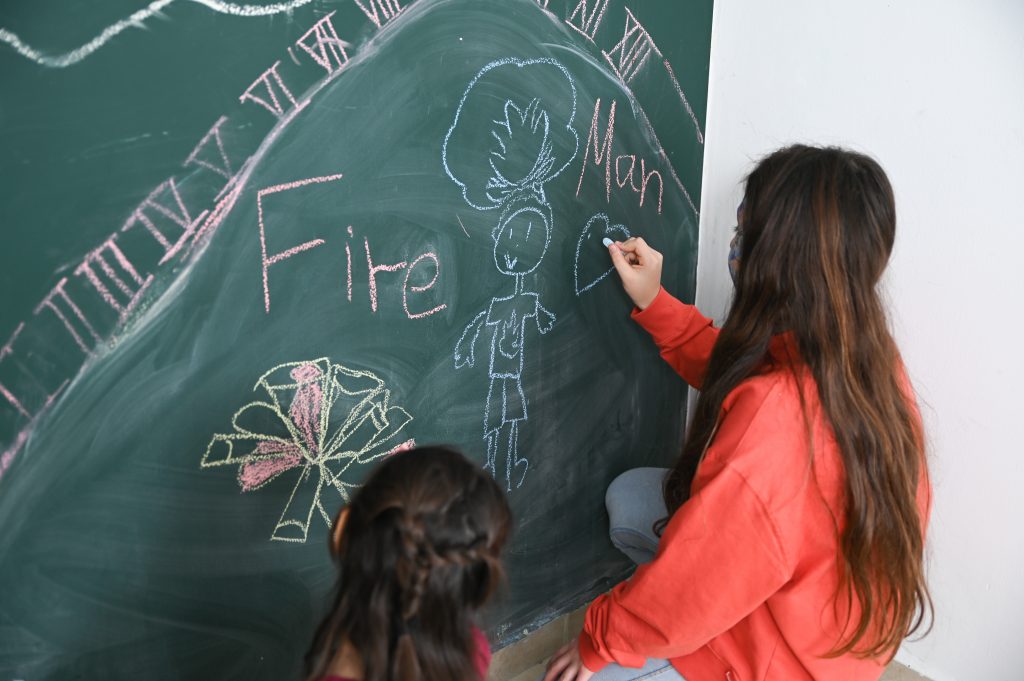- Shimrit Dror
Learning Strategies, Remedial Teaching, Neurofeedback Training and Personal Coaching
Menu
Learning Strategies, Remedial Teaching, Neurofeedback Training and Personal Coaching


I have witnessed so many miracles during my 20 years of work. At least that’s how the parents of the children and students define it. In practice, I know that the successes of my students are due to several main factors. Firstly, I was there, I suffered in elementary school, a little less in high school, and that’s only because in high school I just ran away from classes. I always compare my work to organizing my room. Learning strategies help us make order in the mess that occurs in the child’s mind. Since I am so familiar with the mess, it has existed in my mind for so many years (you are welcome to read about it on the personal story page under the about tab), it is easier for me to understand how to “sort it out” with the children in mind. But this is not enough. There is also the emotional factor. I truly believe that learning is a physical action, a system of neurons and nerve cells in the brain that we must learn to manipulate. Learning is greatly influenced by motivation. Motivation has many components, and a thorough understanding of its components, including the theory of motivation and the mental tools that motivate us to action, is one of the factors (in my estimation only) for the success of my students. It often happens that students arrive discouraged, without faith and above all because their parents convinced them to come. They are not really interested in succeeding. The saying “What will you do in high school?” or “What would happen without studies?” does not measure success. In my opinion, success in life is much more than pedagogical success. These sayings do not help, the 8-year-old boy – he does not see the far future. He is fixated on the next birthday party which for him is his entire world. These intimidating sayings are not the solution. Expanding on the emotional issue, there is a variety of emotional needs that must be answered – if the child’s soul is important to us and so is his success, along with technical pedagogical help, listening, professional help, cooperation, and faith, there is also the next very simple element, which to me is the most important: understanding. Show them that we understand them.For example, when my mother tells me “I don’t understand how often you can tell him to do his homework and he doesn’t do it” I really understand, it’s a nightmare if you don’t have the right tools for learning. And a boy who tells me “I feel that I will never know”, I believe him and understand him. I know that right now he feels a physical turmoil in his brain (physically!) that gets him out of control.True understanding cannot be faked. Certainly not with children. And this is a necessary element in the teacher-student relationship. In addition, there is the variety component.
Variety in learning methods, if they are adapted and correct for the child, is critical to success.
It’s not just a matter of variety for fun. But diversity for the sake of challenging the brain, a challenge that the brain needs to succeed. There are studies that show that children and youth devote themselves more easily to learning when they are in an intermediate stage between “it’s really easy” and “I don’t understand anything”. The correct identification of the stage in which there is a challenge for the child, but in exactly the right degree, is just as critical. Most importantly, there is nowhere to run. Everything is fine, really everything is fine! The child will know how to read, he will know how to speak English, the child will graduate (for those who still care about it these days). Together we should convey the message to the child that “everything is okay”, there is no need to run to achieve anything. One inch at a time, we will discover the abilities that the student has, what his brain needs to remember and understand, and we will move forward safely, and most importantly – with pleasure! (Note: I recommend reading my article on the difference between understanding and memory found in the blog on this website under the Learning Strategies tab in the main menu). The lessons are held at my home in Givatayim. For students who live in distant cities but are still interested about the strategies I use – I recommend online courses on the subject or personal training for parents with me.




צפייה ללא עלות – מיני קורס המסביר מה המרכיבים לשיפור ההבנה, הזיכרון והשליפה של כל ידע שנלמד.